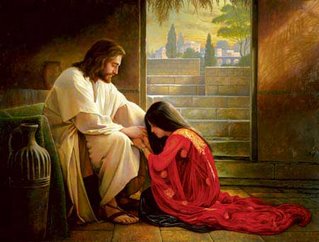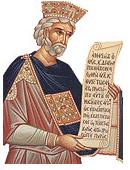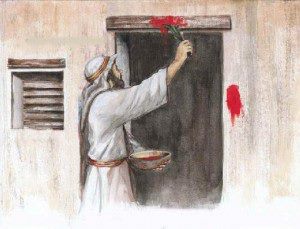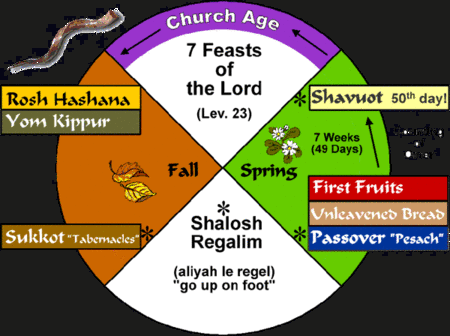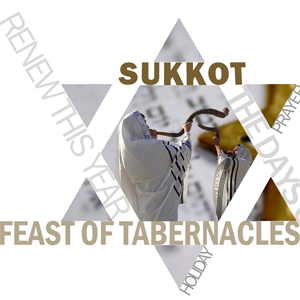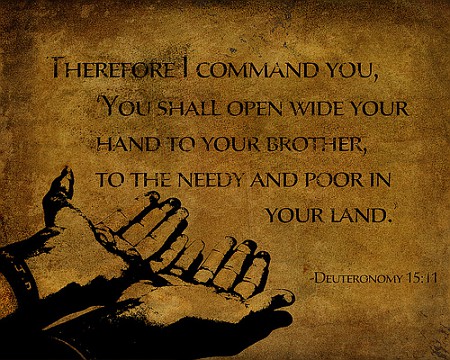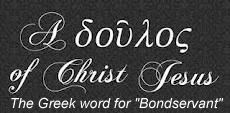|
Wednesday, October 31, 2012
Deuteronomy Worksheet - Chapter 23
Tuesday, October 30, 2012
Deuteronomy Worksheet - Chapter 22
|
Monday, October 29, 2012
Deuteronomy Worksheet - Chapter 21
|
Sunday, October 28, 2012
Deuteronomy Worksheet - Chapter 20
|
Friday, October 26, 2012
Deuteronomy Worksheet - Chapter 19
Review & Intro: In Chapter 18, Moses reminded the Israelites how they were to take care of the Levites who lived in their towns, and how the first fruits would be given to them, etc. because they were in fulltime service to the Lord, and made their living from the people's offerings. We also saw the warnings of God through Moses to the people of not participating in witchcraft, sorcery, and other type things of this nature. God would send them a prophet like Moses and they were to listen to Him. We saw this was Jesus the Christ, the Messiah. Amen. In Chapter 19, Moses will remind the Israelites of the six cities of refuge that are to be created for the manslayer to find safety from the blood avenger if he had killed someone accidentally rather than with malice and hate.
3. What example is given of how a person might accidentally kill a friend? vs. 5
4. Who will be after the manslayer to kill him in his anger before hearing a trial of his innocence? vs. 6
5. This was the purpose of the cities of refuge; to protect the manslayer until his case could be heard. (vs. 7-9) ... What kind of blood would bring bloodguiltiness upon them and the land that was given them? vs. 10
6. How should this make us feel over the babies that are aborted everyday in our land? Give your heartfelt answer.
7. What were the 2 things the Lord asked them to do in order to continue to live on the land of promise? vs. 9
8. If a truly guilty man who hated his neighbor and had waited for the opportunity to kill him tried to flee to one of these cities, the elders of the city would hear the case and rule him guilty. What would happen then? vs. 12
10. Do you pity criminals who have killed others when they are given the death penalty? Why should we pray for them to be saved, and yet believe they should pay for the innocent blood they have shed?
11. What were they not to move and why? vs. 14
12. Was a single witness ever to be enough to convict someone of a sin? vs. 15
13. How many witnesses were required before a report of a sin was to be believed? vs. 15
14. If a malicious witness rose up against a man to accuse him of wrongdoing, but was found out through investigation to have been lying, what punishment would he receive? vs.16-19
15. What would this cause the other people to do? vs. 20
16. They were not to show pity when the act was returned upon him. Fill in the blanks for the law ... "life for ____, eye for ____, tooth for _____, hand for _____, foot for _____." vs. 21
17. How did Jesus change this law under the New Covenant of Grace? Comment on this verse:
19. Who would the blood avenger in our life be? 1 Peter 5:8 -
20. We can run to Jesus for refuge. What is His promise to us?
1. The Lord would cut off nations for Israel to possess and settle in. They would already be cities full of houses (vs.1) ... When that time arrived, they were to "set aside" 3 of the cities to be in the midst of the land. (vs.2) .... They were to prepare the roads and divide into 3 parts the territory of the land. What was the purpose of all of this? vs. 3Deuteronomy Chapter 19 - Observation Questions
Note: At this point in their history, the Israelites had already established three cities of refuge east of the Jordan River: Golan, Ramoth, and Bezer (Deut. 4:41-43). Now, when they enter the land, they are to designate three more cities of refuge inside the borders of Israel, to the west of the Jordan, for a total of six. They will be the cities of: Hebron, Shechem, and Kedesh
2. Who could flee to a city of refuge for protection? vs. 4
3. What example is given of how a person might accidentally kill a friend? vs. 5
4. Who will be after the manslayer to kill him in his anger before hearing a trial of his innocence? vs. 6
5. This was the purpose of the cities of refuge; to protect the manslayer until his case could be heard. (vs. 7-9) ... What kind of blood would bring bloodguiltiness upon them and the land that was given them? vs. 10
6. How should this make us feel over the babies that are aborted everyday in our land? Give your heartfelt answer.
7. What were the 2 things the Lord asked them to do in order to continue to live on the land of promise? vs. 9
8. If a truly guilty man who hated his neighbor and had waited for the opportunity to kill him tried to flee to one of these cities, the elders of the city would hear the case and rule him guilty. What would happen then? vs. 12
Note: Who was the blood avenger? The right of vengeance was given to the nearest kinsman of someone who was murdered. Because a person could act out of anger to kill before they knew the facts of the case, the cities of refuge were set up.9. When the guilty person was turned over to the avenger of blood, why were they not to pity him? vs. 13
10. Do you pity criminals who have killed others when they are given the death penalty? Why should we pray for them to be saved, and yet believe they should pay for the innocent blood they have shed?
11. What were they not to move and why? vs. 14
12. Was a single witness ever to be enough to convict someone of a sin? vs. 15
13. How many witnesses were required before a report of a sin was to be believed? vs. 15
14. If a malicious witness rose up against a man to accuse him of wrongdoing, but was found out through investigation to have been lying, what punishment would he receive? vs.16-19
15. What would this cause the other people to do? vs. 20
16. They were not to show pity when the act was returned upon him. Fill in the blanks for the law ... "life for ____, eye for ____, tooth for _____, hand for _____, foot for _____." vs. 21
17. How did Jesus change this law under the New Covenant of Grace? Comment on this verse:
- Matthew 5:38-42
Application:
18. The cities of refuge are easily seen as a picture of the Lord Jesus Christ. (see Luke 24:27 and Colossians 2:17) ..... It is easy to see that we could be the manslayer needing a city of refuge to flee to. What are we guilty of and what should happen to us? Romans 6:23 -
19. Who would the blood avenger in our life be? 1 Peter 5:8 -
20. We can run to Jesus for refuge. What is His promise to us?
- John 15:4
- Hebrews 4:15,16
- Kedesh - "Holy Place" - Hebrews 10:19 -
- Shechem - "Shoulder" - Isaiah 9:6 -
- Hebron - "Fellowship" - 1 Corinthians 1:9 -
- Bezer - "Fortress" - Psalm 18:2 -
- Ramoth - "Exaltation" - Acts 5:31 -
- Golan - "Rejoicing" - Psalm 5:11 -
Note: We have found our resting place in the Lord Jesus Christ. He has paid for our sins and He gives us a place of refuge from the world chasing us and the devil pursuing us. Take refuge in Him today for all that You need. Amen.
23. Summarize this lesson and post a prayer if you would like.
Thursday, October 25, 2012
Deuteronomy Worksheet - Chapter 18

Review & Intro: Moses has been reviewing the law, the feasts, and all the things of the law that he had shared with them in Exodus, Leviticus, and Numbers before they enter the Promised Land. In Chapter 17, he explained to them what the Lord said concerning the time they would choose a king to rule over them. In Chapter 18, Moses tells them why and how they should all take care of the Levites among them. They are the ones who belong fully to the Lord for ministry and the the Lord is their only inheritance. He takes care of them through the people. The subject of witchcraft is covered as well; it is an abomination to the Lord.
1. The Levitical priests, the whole tribe of Levi, were to have no portion or inheritance with Israel. The Lord was to be their only inheritance. How were their needs to be met? vs.1-2Deuternonomy Chapter 18 - Observation Questions
2. What parts of each sacrifice from the people were to be given to the priest to eat? vs. 3 - Name 3
3. Other than the meat of the sacrifices, what were the people to give to the priests? vs. 4 - Name 4 things
Note: The Levites who served in the tabernacle were men, and their time of service was from the age of 30 to 50 (Numbers 4:3). At the age of 50, they were to retire (Numbers 8:25). But regardless of whether they were young or old, male or female, all of the Levites were dependant upon the other tribes for support. The land they farmed was in each of the other tribes' territorites (Numbers 35:2-8). The money they received and the meat that they ate was from the offerings that the other tribes made to the Lord (Numbers18:24).4. How are we to take care of those in the ministry today? Comment on the verses below:
- 1 Corinthians 9:13,14 -
- 2 Corinthians 9:7 -
- 1 Timothy 5:17,18 -
Note: We should be thankful for our ministers and be faithful to tithe and offerings, realizing that for things to be well organized and effective to care for the needs of the people, the staff must be paid and cared for along with all the bills to keep things operating smoothly. We should be cheerful in giving for the Lord loves a cheerful giver.5. Back to Deuteronomy 18. In regard to the Levites and the priest that served them, the Lord had chosen him and his sons to stand and serve the Lord forever. (vs.5) ... The Levites would live in their towns, but would go to the place the Lord chose for them to serve whenever he desired along with his fellow Levites who stood before the Lord. (vs.6,7). How would their needs be met? vs. 8
6. What did the Lord want them to not learn to do when they entered the Promised land? vs. 9
7. What did the Lord make clear that His people were not to be a part of in anyway? vs.10,11 - Name 9 things
8. What would the result be if they did these "detestable" things? vs. 12
9. The nations that they would be dispossessing were people who did practice witchcraft and these other things, but God did not allow His people to do them. How did He want His people to act? vs.13,14 -
10. Who did the Lord promise was coming that they would be able to listen to? vs.15
11. What had the people asked of the Lord back when He gave the commandments to Moses on Mt. Horeb? vs. 16
12. At that time, the Lord said the people had spoken well, and that He would raise up a prophet from among their countrymen that would be like Moses. The Lord would put His words in his mouth and speak to them. (vs.17,18) ... What would happen to anyone that would not listen to God's Words through this prophet speaking for Him? vs. 19
13. Is this prophet spoken of in the New Testament? Comment on the following verses:
- John 1:19-21 ... What were the Jewish people looking for when they asked John the Baptist about his identity? vs. 21 -
- John 5:46,47 ... Who did Jesus say wrote about Him and should be believed?
- John 6:14 ... What did the men who saw the signs that Jesus performed say that He must be?
- Matthew 17:1-6 ... At the transfiguration that Peter, James, and John got to be a part of ... they saw Moses, Elijah, and Jesus in His Glory ... Who did God tell them to listen to? ...
- Acts 3:18-26 .... Who does Peter say in his sermon is the prophet that God had sent them?
- Based on these verses, who are you convinced is the prophet that God would send like Moses that would give them His Words and they would be destroyed if they did not believe Him? .....
Application:
15. Things such as witchcraft, palm reading, astrology forecasts, and things like that are meant to seem "harmless" in our day. Do you think the Lord would want us to give attention to these kind of things? Sorcery is mentioned in the New Testament also. Comment on the following verses:
- Acts 19:18-20 - What did the Spirit's conviction lead the people to destroy? ..
- Galatians 5:19-21 - Make this list and highlight where sorcery is mentioned. ....What happens to those who practice these things as a habit of life? ...
- Revelation 21:7,8 - What habitual sins are listed that keep one out of heaven? ... again highlight sorcerers in the list you make
16. If you have made "light" of these things, this would be a good time to see the seriousness of them and ask the Lord to forgive you and help you turn from anything that would be considered idolatry or sorcery, etc.
17. Jesus told those in His day that if they had believed the writings of Moses, they would believe in Him because Moses wrote of Him. Jesus was the Prophet like Moses and yet Jesus is also God in the flesh. Romans says "Faith comes by hearing the Word of God", but Paul also asks "How will they hear without a preacher?" ... Read Romans 10:8-17 ... and summarize what it is saying in your own words.
18. Just like they were to support the Levites who gave their time to serving the Lord, we must support our pastors and missionaries and everyone who is sharing the Gospel with those who need to come out of darkness into God's marvelous light. What are you doing to share with them? ... to support those who are in the ministry? ... Are you giving with a cheerful heart ? Why or why not?
19. Summarize this lesson and post a prayer if you would like.
Wednesday, October 24, 2012
Deuteronomy Worksheet - Chapter 17

Review & Intro: Chapter 16 was about the 3 Feasts that Israel were to celebrate in the place that the Lord would choose for them when they were living in the Promised Land. Chapter 17 describes how the sacrifices were to be without blemish or defect. This is covered even more thouroughly in Leviticus 22. This demonstrated that God demanded holiness for the substitute in place of the sinner. When Jesus Christ was crucifed for our sins, was was holy and without sin. Peter said that we were redeemed by "the precious blood of the a lamb unblemished and spotless, the blood of Christ." (1 Peter 1:9).
Deuteronomy Chapter 17 - Observation Questions
1. What was required of the ox or the sheep that the Israelite would offer to the Lord and why? vs. 1
2. If there was a man or a woman in any of the towns that left the worship of the Lord on the terms that He had set in place, and they had literally gone off to serve "other gods and worshiped them" .. or had become involved in the "worship of the sun, moon, or heavenly host", it was to be investigated thoroughly. Once it was known to be an absolute fact, what was to happen to the person? vs.2-5
3. This extreme measure was not to be taken on heresay, but on the evidence of 2 or 3 actual witnesses. A person was never to be put to death on the evidence of 1 witness. (vs.6) ...Who was to be the first to cast a stone in the person's death? vs. 7
4. What was the purpose of this action? vs. 7
5. This makes the story of the adulterous woman in Jesus' time even more meaningful. Remember, she was caught in the "very act" and so the witnesses were there and letting Jesus know that the law of Moses should be carried out concerning her. What did Jesus say to them? He said "he among you that has 'no sin' be the 'first' to cast a stone. He bent down and began to write in the sand and most believe He was listing the commandments that all of them would have guilt in at some point as well. Let's read the story and realize more than ever that "The Law came through Moses; grace and truth came through Jesus" (John )
- Read John 8:1-11
- ..... Jesus asked her .... "Where are your accusers?"
- Did Jesus condemn her? vs.11
- What did He tell her? vs. 11
- What do you think He meant by that? Could she literally never commit a sin again? What do you think He meant in light of the sin her accusers had condemned her for?
- Remember this - The Holy Spirit convicts. It is the enemy who accuses us and condemns us. Comment on the following verses:
- Romans 8:1 -
- Romans 8:34 -
- Revelation 12:10 -
- Who condemns us? .......
7. If a man acted presumptuously and did not listen to the priest serving the Lord or to the appointed judge at the time, what would happen to them and why? vs.12,13
8. What would the people begin to want after they entered the land of Promise that would make them be like all the nations around them? vs. 14
9. When they desired this, what were they to be sure to use as a measure in choosing a king to rule over them? vs. 15 - Name 2 things
10. What were the things the king chosen over Israel was "not" to do? vs. 16 - Name 4 things he was "not" to do -
11. What had the Lord said for the people to never do again? vs. 16
12. Once the king took office and was sitting on his throne of his kingdom, what was he to personally write out for himself on a scroll and in whose presence? vs. 18
Note: Think of that when you are thinking our lessons are too long to write out (smiling)13. The king was to keep the personally handwritten copy of the law on the scroll with him at all times. He was to read it all the days of his life. What would he learn through this and how would he learn it? vs. 19
14. What would the "law of the Lord" help the king not to do? vs. 20 - Name 2 things
15. What would be the result of the king obeying the law of God? vs. 20
16. God had wanted to be the only king over Israel. He wanted them to have leaders as they did under Moses, but to remain dependent on Him as their king. In Judges, the people asked Gideon be their king. What did Gideon say to them at that time?
- Judges 8:22-23 -
- 1 Samuel 8:5 -
Note: God knew this day would come, when they rebelled against His plan. So in preparation for their rebellion, He gave them standards for this king they wanted. Of course they neglected the standards as well. The first king they appointed was Saul, but God's choice for them was David, who God called "a man after His own heart."
18. We are thankful that Jesus is our unblemished and perfect sacrifice for our sins. In Him, we have the righteousness of God to appear before the throne of mercy in our times of need. Take a moment and thank the Lord for Christ, our Passover Lamb. Amen.Application:
19. Like the woman caught in the very act of adultery, I am sure if there was a camera installed on our every thought and action in the most private places, we would stand guilty of a sin that would have been punishable by death under the law of Moses. As Christians, we have the Holy Spirit that helps us "put to death" sins in our body, but we will not suffer physical death or separation from God in the life to come if we are truly born again and have a repentant heart for our sins. Comment on the following verses:
- Romans 8:13 -
- Colossians 3:8-11 -
- Don't multiply horses. In other words, don't depend on the horse for strength, but on the Lord. What do you think we depend on to win our battles today? Read Psalm 20:7 and comment.
- They were never to return to Egypt. This is a picture of the world for us, a place of power or security in things of the world. What did Stephen say about the historical record of Israel? Acts 7:39 -
- What do we turn to in the world today that would be not depending on the Lord?
- They were not to multiply wives or money. In other words, don't feed the lust of the flesh - immorality and greed which is idolatry. What does 1 Timothy 6:9-10 say about those who want to get rich in this life?
- They were to write out a copy of the Law and read it everyday. How does Psalm 119:9-11 say a young man can keep his way pure? What does Romans 12:1,2 tell us to do in order to always know God's good and acceptable will for our lives?
- These are safeguards for all of us to avoid the pitfalls of idolatry and immorality. What steps can you take to do this?
Tuesday, October 23, 2012
Deuteronomy Worksheet - Chapter 16
Review & Intro: Moses is preparing the people to go into the Promised Land, giving them reminders of commandments, ordinances, etc. Included in this must be the reminder that they have 3 feasts that the men will be required to come to at the place the Lord chooses 3 different times a year. Chapter 16 begins with the instructions for celebrating the feast of Passover in the month of Abib which was later called the month of Nisan.
Deuteronomy Chapter 16 - Observation Questions
1. What happened in the month of Abib that the Israelites were to celebrate every year? vs. 1
2. Where were they to sacrifice from the flock and the herd at when they crossed over into the Promised land? vs. 2
3. What kind of bread were they to eat with it for 7 days and what was it called? vs. 3
4. Why was it called this and what was this to cause them to always remember? vs. 3
5. There was to be "no leaven" seen with them in all their territory for 7 days. What time on the first day was the sacrifice to be offered and how long did they have to eat it? vs. 4
6. They were not allowed to sacrifice the Passover lamb in any of their towns the Lord would give them. (vs. 5) .. They were to go at the place that the Lord would choose to establish His Name. Eventually this would be in Jerusalem. (vs.6) ... Why were they to sacrifice the Passover lamb in the evening at sunset? vs. 6
7. Where were they to cook and eat the passover lamb? vs. 7
8. Where were they to go the following morning? vs. 7
9. How many days were they to eat unleavened bread after the Passover meal? vs. 8
10. How were they to observe the 7th day at the end of that week? vs. 8
11. We see the picture of God's plan of redemption in the observance of the feasts of Israel each year. The Lord Jesus Christ was the passover lamb for us all so that God passes over us and we escape His wrath because He sees the blood of Jesus upon our hearts and we are the righteousness of Him as we believe in His death on the cross, and His resurrection from the grave. We see that He was without sin as we look upon the "unleavened bread" and we see that we are called to live a sanctified life, free of the power of sin as we follow Him. When Jesus raised from the dead, it was the day they were celebrating first fruits, and the Scripture tells us that He is the first fruits of the dead. It's amazing. Comment on the following verses:
- 1 Corinthians 5:7 -
- 1 Corinthians 15:20 -
13. What were they to bring to this celebration (Feast of Weeks) that occurred 50 days after Passover/Unleavened Bread/First Fruits? vs. 10
14. How would it be determined "how much" this freewill offering would be for each? vs. 10
15. Who would be included in this celebration of the Lord's blessing at the "Feast of Weeks"? vs. 11 - Name 9 -
16. Where were they to go to celebrate this together? vs. 11
17. What did the Lord want them to remember as they celebrated these times? vs. 12
18. When were they to celebrate the Feast of Booths (Tabernacles) ? vs. 13
Note: This was in the fall months of harvest time. See the chart above.19. Who would be included in this celebration of the Lord's blessing at the "Feast of Booths (Tabernalces)"? vs. 14 - Name 9
20. How many days would they celebrate this feast? vs. 15
21. What would cause them to be altogether joyful at the time of this feast? vs. 15
22. What three feasts would all the males be required to appear before the Lord three times a year? vs. 16 - Name 3
23. They were not to appear before the Lord empty-handed. What was each man to bring before the Lord? vs. 17
24. How are we to determine what should be given today in offerings?
- 2 Corinthians 8:12-15 -
26. How was justice to be served? vs. 18,19
27. What does taking a bribe do to the eyes of the wise and the words of the righteous? vs. 19
28. What would cause them to continue to live and possess the land the Lord was giving to them? vs. 20
29. What were they to be sure that they did not plant for themselves? vs. 21
30. What were they not to set up for themselves and why? vs. 22
Application:
31. How is giving freewill offerings a way to express worship to the Lord? They were not to forget to take care of the Levites (ministers), the widows, the orphans, etc. They were to come to the place the Lord designated to show public praise for all the blessing He had given them. How do we do this today? If you are not doing this currently, what steps can you take to become more disciplined in this much needed affirmation of showing the Lord and others what He has done for you?
32. What things should we not neglect to do? Comment on the verses below:
- Hebrews 10:25 -
- Hebrews 13:16 -
- I Thessalonians 5:18 -
33. How should we give our offerings to the Lord? Comment on the verses below:
- 2 Corinthians 9:7 -
34. Summarize this lesson and post a prayer if you would like.
Monday, October 22, 2012
Deuteronomy Worksheet - Chapter 15
 Review & Intro: In the last chapters, we have seen Moses reviewing the Law for the people of Israel before they enter the land of Promise. In most cases, he has been giving an abbreviated form of the original time he delivered these things to them. However, as we begin chapter 15, he is actually giving more detail about the Sabbath Year than we received earlier in Exodus and Leviticus. What more do we learn?
Review & Intro: In the last chapters, we have seen Moses reviewing the Law for the people of Israel before they enter the land of Promise. In most cases, he has been giving an abbreviated form of the original time he delivered these things to them. However, as we begin chapter 15, he is actually giving more detail about the Sabbath Year than we received earlier in Exodus and Leviticus. What more do we learn?Deuteronomy Chapter 15 - Observation Questions
1. What were they to grant at the end of every 7 years? vs. 1
2. What was every creditor to release at the end of every 7 years? vs. 2
3. Who was this specifically in regard to? vs. 2,3
4. Take a moment to review what God had told them about every 7th year. Other than releasing the debts of all the brethren, what else was to happen to the land every 7 years and how were they to eat during those years? Read and comment with a summary of the following review:
- Exodus 23:10-11 -
- Leviticus 25:2-7 -
5. If Israel was obedient to the voice of the Lord in observing His commandments, what should not be among them because of the blessings He would bring to them in the land they would inherit? vs. 4,5
6. What was the specific blessing coming to them if they would obey the Lord? ... Fill in the blanks from verse 6. ... "For the Lord your God will bless you as He has promised you, and you will _____ to many nations, but you will not _______, and you will ______ over many nations, but they will not ______ over you."
7. What attitude (the heart) and action (the deed) was to be given toward any poor person in any of the towns they would be living? vs. 7, 8
8. How does this compare to what we have been told in the New Testament regarding the poor or needy among us? Comment on the verses below:
- Matthew 6:3 -
- Romans 15:26 -
- 2 Corinthians 8:13,14 -
- Galatians 2:10 -
- James 2:1-6 -
- James 2:16 -
9. Back to Deuteronomy 15. In regard to helping the poor, what was the temptation that they were to avoid in their towns as it got close to the 7th year of release of debt? vs. 8
10. If they did not take care of the poor for any reason, and the poor person cried out to the Lord in their need, what would it be in the eyes of the Lord against them? vs. 9
11. What would the Lord do for them if they were always generous to the poor and their heart was not grieved in giving to them in this manner? vs. 10
12. What is a fact concerning the poor then and now? Comment on the two verses below:
- Deuteronomy 15:11 -
- Matthew 26:11 -
13. Back to Deuteronomy 15. When a person could not pay back a debt, they mortgaged themselves to serve the creditor as a type of slave to them to pay them back with service rather than goods. They could serve no longer them 6 years. What was the creditor to do every 7 years in the Sabbath Year that God declared? vs. 12
14. When a kinsman was set free from serving, what was he to be supplied with as well? vs.13 - Name 3 things that were to be given to him liberally -
15. What were they to remember that would help them let go of the service every 7th year? vs. 15
16. Sometimes a person would not want to be set free from their service to a kinsman. During their time of service, they had been treated well and truly loved being a part of their family so to speak. If they did not want to be set free, they became a bondslave to them; a slave to them "by choice". (vs.16) ... How would that slave (male or female) be marked to show that he/she wanted to belong to a particular service? vs.17
17. How does this help you understand Paul and others calling themselves a bondservant of the Lord Jesus Christ, as well as Paul saying that he had the brandmark of belonging to Jesus? Comment on the following verses:
- Acts 4:29 -
- Romans 1:1 -
- 2 Corinthians 4:5 -
- Galatians 1:10 -
- Galatians 6:17 -
- Philippians 1:1 -
- Colossians 1:7 -
- Colossians 4:7 -
- Titus 1:1 -
- James 1:1 -
- 2 Peter 1:1 -
- Jude 1:1 -
- Revelation 1:1 -
- Revelation 2:20 -
18. Paul said that Jesus was a bond-servant of God the Father. What should this mean to us? Comment on the following verse:
- Philippians 2:7 -
19. Do you consider yourself a "bond-servant" of the Lord Jesus Christ? How should a bond-servant of Jesus conduct themselves to others and why? Comment on the verse below:
- 2 Timothy 2:24 -
20. It is a matter of choosing who we will serve. We had someone tell us we were brain washed and our answer was "We all are, but we have chosen Who we want to wash our brains". .... Jesus said we will either serve God or mammon (material things). When we choose to serve Jesus, we are choosing not to serve our own lusts, our own worldly cravings, and the temptations of the evil one. Comment on the following verses:
- Romans 6:17-23 -
- Romans 6:22 (specifically) -
Note: These men came to the realization that it's better to be enslaved to God for life than enslaved to sin, which results in death. What do you think?
21. Back to Deuteronomy 15. Why should a person not mind setting the other one free after the 6 years of service to them? vs. 18
22. What were the Israelites always to consecrate to the Lord? vs. 19
23. What were they not to do with the firstborn of their herd each year? vs. 19
24. What were they not to do with the firstborn of their flock? vs. 19
25. What were they to do each year with these firstborn animals? vs. 20
26. Where were they to do this? vs. 20
27. If the animal had any kind of defect (such as being lame or blind), they were not to sacrifice it to the Lord. (vs.21) They could, however, eat it still, like they would a gazelle or a deer. (vs.22) ... As always instructed, what was to be done with the blood of the animal? vs. 23
Application:
28. Being free with our money is closely related to being free with forgiving others of the sins they have committed against us. Remember the parable Jesus told about the man who was forgiven his debt, but would not forgive another indebted to him? Read the parable and then comment on the questions given.
- Read Matthew 18:21-25
- ..... Peter wanted to know how many times he would need to forgive his brother that sinned against him. What did Jesus tell him? ..... vs. 21,22
- ..... Jesus told a parable to illustrate this of a king who wanted to settle accounts with his slaves. ... One who owed him 10,000 talents was brought to him ... He did not have the means to repay and was going to have to be sold along with his wife and children for repayment to be made .... He fell to the ground and pleaded with the king. What did the slave tell him concerning the debt owed? vs. 26 ..... What did the king feel toward the man and decide to do for him? vs. 27
- ...... That slave turned around after being fully forgiven and found a fellow-slave that owed him some money. How did he treat the one who owed him? vs. 28 ..... That person asked for patience and time to repay as well. Did this forgiven man forgive the one needing him to do the same for him? vs. 30 .....How did the king deal with him when he found this out? vs.32-34
- ....... How does this compare to our unforgiveness of others according to Jesus? vs. 35
29. Freely we have received forgiveness of the debt we owed to God for our sins. Do we ever have the right to withhold forgiveness to another for whatever they have done to us? What does unforgiveness do to our hearts and how does it effect our relationship to God and others?
29. This chapter has been about having a free and joyful and thankful heart. We should remember that God set us free from slavery and set others free. We should remember how God has blessed us and bless others in need. When others borrow, give freely and expect nothing in return. (Jesus taught this in Luke 6:31-36)....Are you holding someone hostage to a debt they owe you, whether financially or spiritually? What would Jesus have you do according to all we have learned in today's lesson? Please share from your heart.
30. Summarize the lesson and post a prayer if you would like.
Subscribe to:
Posts (Atom)
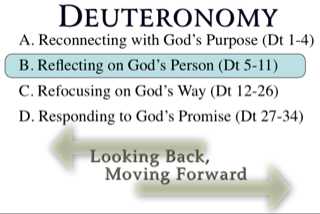
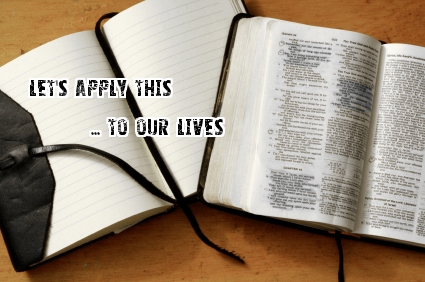
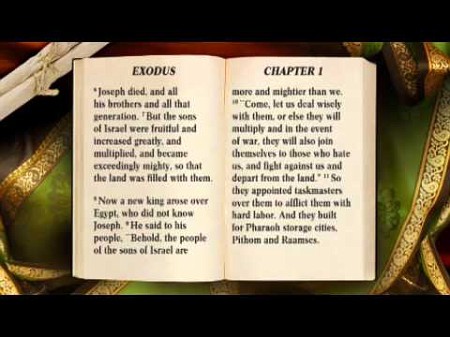

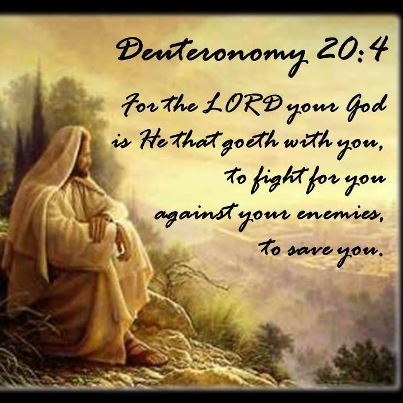
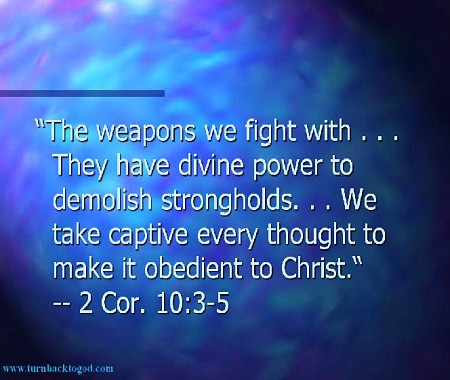

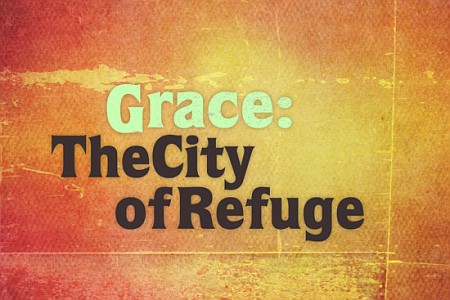
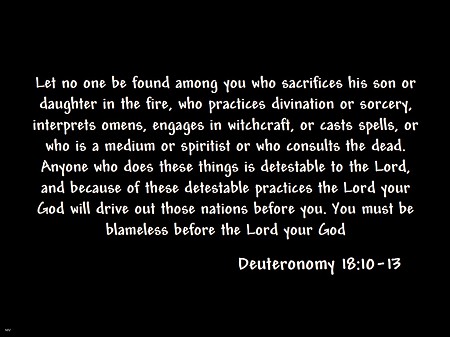
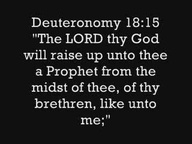
![altar of burnt offering[7] altar of burnt offering[7]](http://images58.fotki.com/v511/photos/9/513379/9447502/altar_of_burnt_offering7-vi.jpg)
